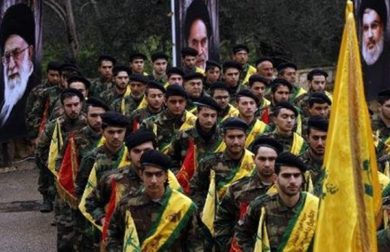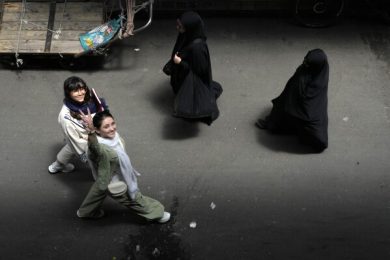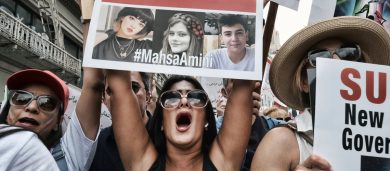The Islamic Revolutionary Guard Corps (IRGC) is one of the most powerful institutions in Iran, responsible not only for military operations but also for domestic control, political influence, and economic dominance. It plays a leading role in enforcing state repression, particularly against women and girls who defy the regime’s strict Islamic codes, such as compulsory hijab laws, gender segregation, and broader limitations on civil liberties.
Targeted sanctions against the IRGC not only undermine the financial and institutional power of the regime but also serve as a strategic move to support the advancement of women’s rights in Iran.
1. The IRGC’s Role in Oppressing Women
A. Enforcing Compulsory Hijab and Gender Laws
The IRGC is central to the state’s enforcement of mandatory dress codes, including:
• Arrests of women for “improper hijab”
• Raids on social events deemed “un-Islamic”
• Supporting and operating alongside the so-called morality police
Women who defy these laws often face intimidation, physical abuse, and imprisonment in facilities linked to the IRGC.
B. Suppression of Women’s Protests
From the 2009 Green Movement to the 2022 “Women, Life, Freedom” uprising, the IRGC has:
• Violently suppressed peaceful protests
• Detained women journalists, lawyers, and students
• Carried out raids on schools and homes
• Operated Evin and Qarchak prisons, where many women detainees are tortured
2. How Sanctions Weaken the IRGC’s Oppressive Machinery
A. Targeting the Economic Empire
The IRGC controls large parts of Iran’s economy through:
• Shell companies
• Military-owned conglomerates
• Fronts for oil, construction, telecommunications, and cyber-surveillance
Sanctions disrupt these revenue streams, limiting the regime’s ability to:
• Fund surveillance tools used to monitor women
• Pay security forces that carry out crackdowns
• Control digital spaces and restrict access to uncensored information
B. Cutting Access to Surveillance Technology
Sanctions can block the IRGC from purchasing or importing:
• Facial recognition software
• Internet censorship tools
• Mobile tracking systems
These technologies have been used to identify and arrest women for attending protests or removing their hijabs.
3. International Precedent and Moral Leadership
A. Global Responsibility to Stand with Women
Designating and sanctioning the IRGC sends a clear message:
• Women’s rights are human rights
• Authoritarian regimes will face consequences for gender-based repression
• The international community supports the freedom of expression and bodily autonomy
B. Recognition by the United States and Advocacy for More Action
The United States designated the IRGC as a Foreign Terrorist Organization (FTO) in 2019. This has:
• Frozen IRGC assets
• Barred U.S. entities from engaging with IRGC-affiliated companies
• Inspired activists to push for similar designations in Canada, the UK, and the European Union
More coordinated action can apply consistent pressure on the regime and demonstrate solidarity with Iran’s women.
4. Case Studies: Sanctions and Women’s Movements
A. South Africa (Apartheid)
Global sanctions helped isolate the apartheid regime and empower the anti-apartheid movement, which had strong participation from women leaders.
B. Taliban Rule in Afghanistan
Sanctions were used to pressure the Taliban over violations of women’s rights—highlighting that economic leverage can reinforce human rights values.
The IRGC’s role in enforcing gender apartheid makes it a similar candidate for targeted pressure.
5. What More Can Be Done
A. Expand Sanctions to IRGC-Affiliated Judges and Officials
Those responsible for sentencing women for hijab violations or political expression should be named and sanctioned.
B. Block IRGC-Controlled Tech Companies
Target platforms and telecom providers that enable the surveillance and silencing of women activists.
C. Increase Aid to Women-Led Civil Society
Sanctions should be accompanied by support for digital tools, secure communication, and funding for feminist organizations working with Iranian women.
Conclusion
Sanctioning the IRGC is not just a foreign policy move—it is a stand for women’s freedom, justice, and dignity. By weakening the regime’s primary repressive force, the international community empowers Iran’s courageous women who are leading the charge for change.
To support “Women, Life, Freedom,” the world must treat sanctioning the IRGC as a necessary step toward justice.
Join Our Newsletter!
Stay informed with the latest updates, news, and ways to take action in the fight for justice and global security. Sign up now to get updates delivered straight to your inbox!




